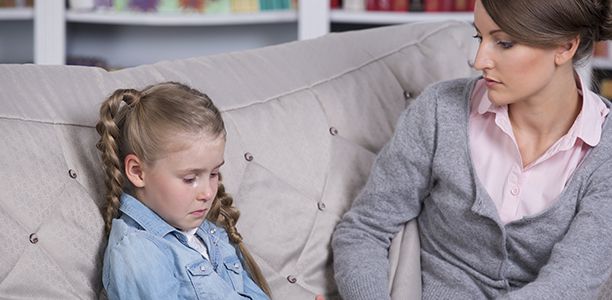The children of parents who have cancer can feel anxious and isolated when well-meaning parents withhold information about their health, says Professor Kate White, Chair of Cancer Nursing at the University of Sydney.
“Children often get excluded from conversations about what’s happening to a parent who has cancer,” says Professor White.
“Parents exclude children from conversations about cancer for a range of reasons, but the unintended impacts are that children can feel isolated and anxious.”
“Most parents withhold information because they want to protect their child. Others withhold information because they simply don’t know what to say, or they fear that becoming emotional would be distressing for their children.”
“The fact is that cancer isn’t a solitary experience, especially for parents – it impacts one’s children, partner, family and wider social network,” Professor White says.
“A diagnosis of cancer and the subsequent impact of hospital admissions and complex treatments have a huge impact on the normal functioning of a family,” Professor White says.
“Managing day-to-day family life, one’s own emotional journey, as well as the needs of our children can be an enormous task. Children’s emotional and practical needs can be overlooked during this time.”
Claudia Bonifer has been mindful of sharing age-appropriate information with her daughter Ella since her treatments for breast and ovarian cancer in the past three years.
Now aged 11, Ella was eight when Claudia was first diagnosed with breast cancer.
“My husband and I thought it best that Ella knew I had cancer and that the treatments would bring a lot of physical changes. We also wanted Ella to know that the doctors thought I had a very good chance of surviving the cancer.”
Claudia was given Cancer Council resources by her breast care nurse and oncologist about how to talk to a child about cancer. “The information has been helpful and now that Ella is a few years older, we’ve changed what we share and how we talk about cancer with her.”
Professor White says that “Parents are encouraged to keep the conversation going with their children about what is happening, and to provide opportunities for children of all ages to explore what this diagnose means to them.
“Kids are intuitive, they will know something is wrong, and may imagine things to be worse than they are when not included.”
Claudia Bonifer agrees: “Ella is a clever child and can read social and family situations – she knows when something is going on – and it would have been wrong to withhold information from her. Also, if my health deteriorated, I didn’t want her to be shocked or unprepared for bad news.”
Research shows that teenagers who have a parent with cancer have increased levels of emotional concern that can last well after treatments have completed. Researchers from CanTeen and Sydney Nursing School are testing a resilience-based intervention to assist this vulnerable group.
“When a parent is undergoing cancer treatment, it is a challenging time for children and young people – they may need additional support from the people communities that are best known to them,” said Professor White.
“It’s when families, schools and communities work together to help build resilience in our children and young people that they can gain the tools to cope with this difficult situation.
“This concept of building resilience can be expanded to be relevant to the diagnosis of any life threatening disease and its impact on the family.”
(Source: The University of Sydney)










